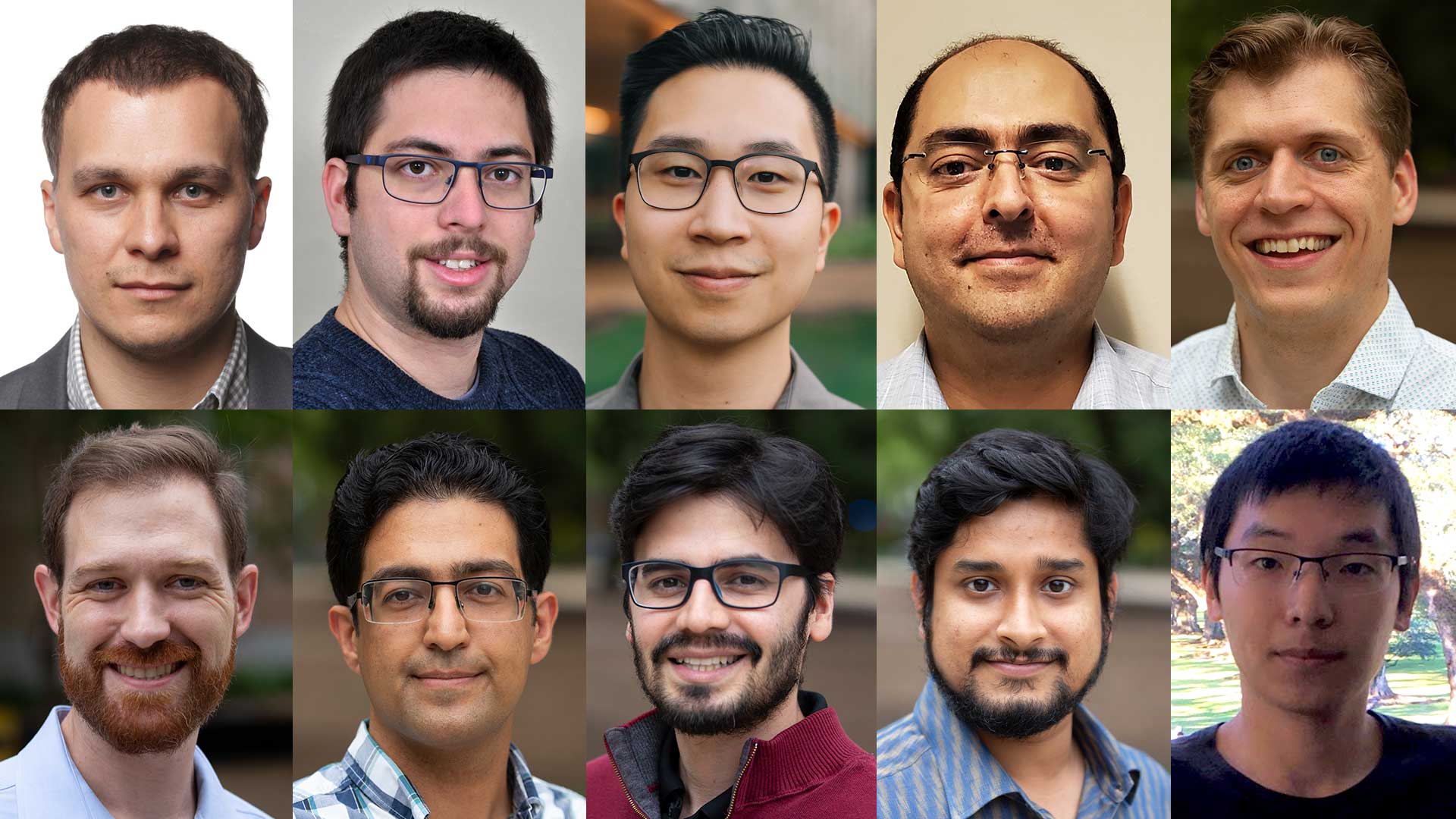The George R. Brown School of Engineering has named 10 Future Faculty Fellows from eight departments to support Ph.D. and postdoctoral researchers who are applying for tenure-track faculty positions this year.
The fellows will attend faculty panels, workshops, one-on-one coaching sessions and a mock interview designed to support them as they prepare for faculty interviews. A monetary award of $1,000 will support each fellow for attending conferences and university seminars.
Renata Ramos, associate dean for academic affairs, and Tracy Volz, director of the school’s ACTIVATE Engineering Communication Program, scheduled 17 Future Faculty Fellow events for the 2022-23 academic year.
Volz and the Engineering Communications Program will run most of the workshops to assist the fellows in preparing their job talks, written statements, and cover letters. One workshop will be led by the Center for Teaching Excellence (CTE), focusing on teaching statements, and another will be led by the assistant director of diversity, equity, inclusion and outreach in the Engineering Dean’s Office, Dr. Cecilia Fernandez, focusing on diversity statements.
The panels, hosted by Ramos, will feature some of the School of Engineering’s professors and alumni. There will also be a panel to discuss the different types of institutions and faculty positions, where professors from other institutions will be sharing their experiences.
Andrey Baydin has been an Attwell-Welch postdoctoral research fellow in electrical and computer engineering (ECE), working in the Junichiro Kono Laboratory, since 2019. He graduated from Perm State University in Russia and received his M.S. and Ph.D. degrees in physics at the University of Louisville, Ky., and Vanderbilt University, in 2013 and 2018, respectively. His research interests include light-matter interaction in the ultra-strong coupling regime and ultrafast spectroscopy of quantum materials.
Constantinos Chamzas is a sixth-year doctoral student in computer science (CS), working with Lydia Kavraki, the Noah Harding Professor of CS, and Anshumali Shrivastava, associate professor of CS. He earned a Diploma (M.S. equivalent) in ECE from Aristotle University of Thessaloniki, Greece, in 2017, and was awarded an NSF Graduate Research Fellowship to study at Rice. His research interests focus on algorithmic robotics, with an emphasis on integrating learning-based methods with classic robotic planning algorithms.
Joshua Chen is a sixth-year doctoral student in bioengineering (BIOE). He earned a B.S. in BIOE from the University of California, Berkeley, in 2017, and was awarded an NSF Graduate Research Fellowship to study at Rice. He works in the lab of Jacob Robinson, associate professor of ECE, and of BIOE. Chen’s research interests are in neural engineering, wireless materials and devices, and biohybrid electronics for wearables and implants.
Mehdi Hemmati has been a postdoctoral research associate in computational applied mathematics and operations research (CMOR) since 2019. He earned a B.S. and M.S. in industrial engineering from Sharif University of Technology in Tehran, Iran, in 2003 and 2005, respectively, and a Ph.D. in industrial and systems engineering from the University of Florida in 2013. Mehdi’s research interests are optimization theory and its applications in healthcare, with a focus on cancer screening and treatment.
Evan Kwiatkowski is a postdoctoral research associate in statistics. He earned a B.S. in mathematical sciences from Binghamton University in 2011, an M.S. in applied mathematics from the University of Colorado Denver in 2014, and a Ph.D. in biostatistics from the University of North Carolina, Chapel Hill, in 2021. His research interests are the design of clinical trials using Bayesian methods.
Roy Lycke has been a postdoctoral research assistant since 2020 at Rice in the Nanoscale Neural Interface Laboratory of Chong Xie, associate professor of ECE. He earned his B.S. and M.S. in computer engineering from Iowa State University in 2011 and 2012, respectively, and his Ph.D. in biomedical engineering from Purdue in 2019. His research focuses on brain-machine interfaces, neuroprostheses, sensory repair and analysis and neural stimulation.
Rambod Mojgani has been a postdoctoral research associate in mechanical engineering (MECH) since 2020. He earned a B.S. and M.S. in aerospace engineering from Amirkabir University of Technology in Tehran, Iran, in 2011 and 2013, respectively, and a Ph.D. in the same field from the University of Illinois at Urbana-Champaign in 2020. He works in the Environmental Fluid Dynamics Group of Pedram Hassanzadeh, associate professor of MECH.
Roger Paredes recently earned his Ph.D. in civil and environmental engineering (CEE) from Rice. He earned a B.S. from Central University of Venezuela in Caracas and an M.S. from Polytechnic University of Turin, Italy, both in civil engineering in 2014. He works in the research group of Leonardo Dueñas-Osorio, professor of CEE. His research interests include reliability and resilience of complex systems, rare event simulation, smart infrastructure, provably correct approximation algorithms and natural hazards.
Soumyabrata Roy has been a postdoctoral research fellow in materials science and nanoengineering (MSNE) at Rice since 2019. He earned a B.S. in chemistry from Presidency College in Calcutta in 2011, an M.S. in chemistry from the Indian Institute of Technology in Kharagpur in 2013, and a Ph.D. in chemical science from the Jawaharlal Nehru Centre for Advanced Scientific Research. He works in the research group of Pulickel Ajayan, the Benjamin M. and Mary Greenwood Anderson Professor of Engineering and chair of MSNE.
Fan Yang is a second-year doctoral student in CS working in the lab of Xia (Ben) Hu, associate professor of CS and director of the Data to Knowledge Lab. He earned a B.S.and M.S. in electrical engineering from Xidian University in China in 2013 and 2016, respectively. From 2016 to 2021, he conducted his Ph.D. research in ECE and CS from Texas A&M University. His research focuses on developing effective and efficient model interpretation techniques for eXplainable Artificial Intelligence (XAI).

